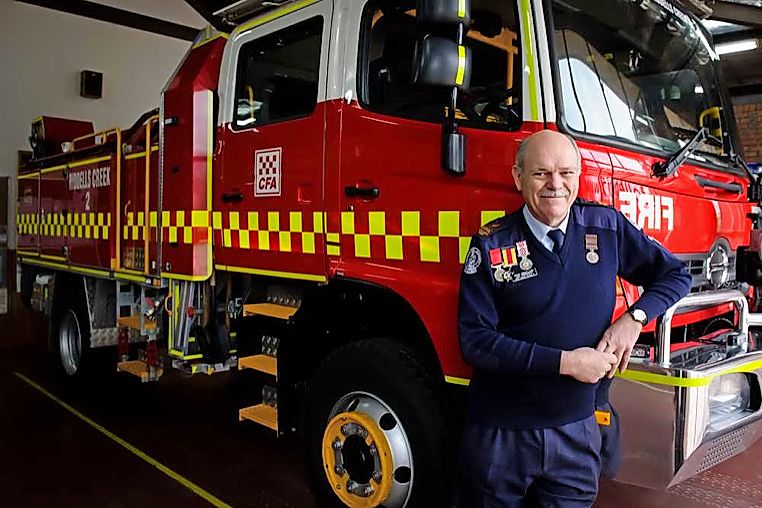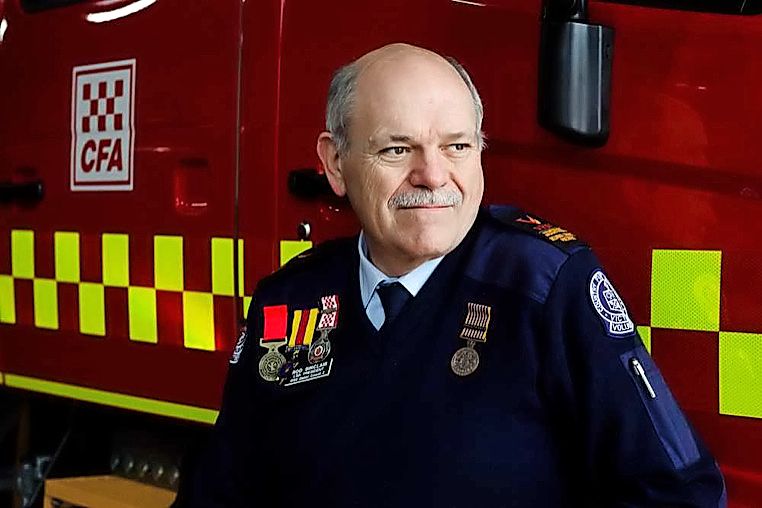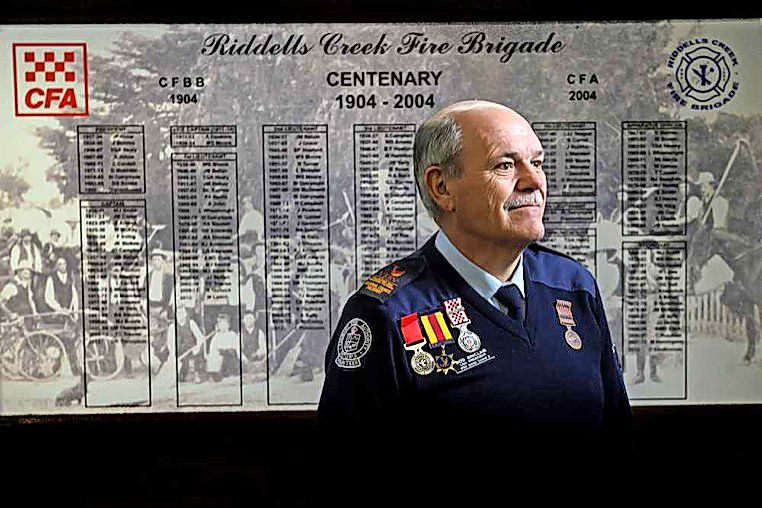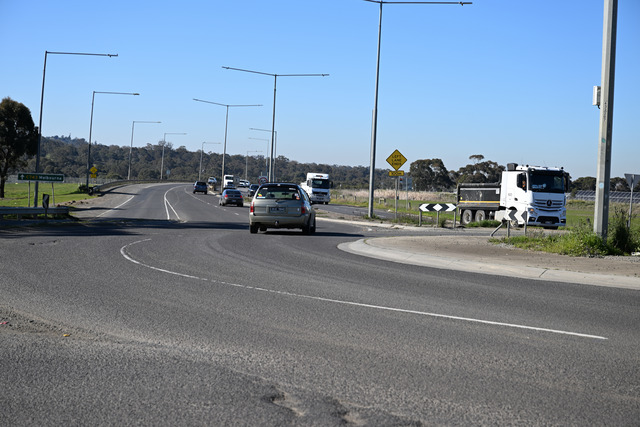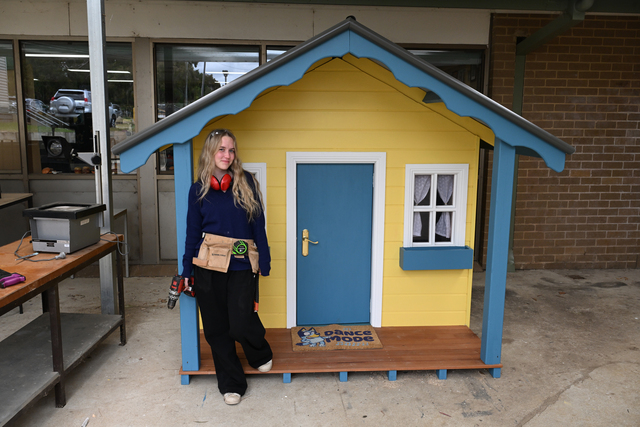Rod Sinclair says he was 14 when he officially became a member of the CFA.
‘‘Officially’’ because, like many youngsters at the time, he had been turning out for fires with his father since he was eight or nine years old.
After more than 50 years as a volunteer, including significant stints as brigade captain and instructor, the Riddells Creek veteran has been presented with CFA life membership and a national medal.
‘‘It’s not done these days, but back then every kid was involved from a young age like that,’’ he said.
Mr Sinclair, who remains heavily involved as a vehicle trainer and firefighters’ association leader, said an emphasis on skills-based training was among the major changes to come in during his career.
‘‘We used to just do a massive amount of burning off, because that was the only way to do it,’’ he said.
‘‘Nowadays, with all the training centres, we are a lot better prepared.’’
He said protective equipment, too, had come a long way.
‘‘Firefighting is a lot safer than it used to be.’’
Not surprisingly, the Ash Wednesday bushfires of 1983 that devastated the Macedon Ranges are etched in Mr Sinclair’s memory.
But the trouble caused by the first batch of diesel trains is something not remembered by many others.
‘‘In the early days, those diesels used to light fires all along the train line,’’ he said.
‘‘We attended something like 120 fires a year [caused by trains] in the early ’70s.’’
One thing that hasn’t changed is the central part played by the brigade in the town life of Riddells Creek.
‘‘I’m very proud of our brigade,’’ Mr Sinclair said. ‘‘We’re still very strong on the community side with lots of volunteers, and that’s good for the town.
“That kind of mindset flows into every area. I remember when the football club was doing a major upgrade and they were without a siren for a time, so we’d go down with the fire truck and ring the siren at the end of the quarter.
“That’s what it’s all about, really,’’ he said.

